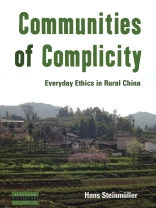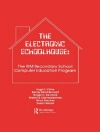Everyday life in contemporary rural China is characterized by an increased sense of moral challenge and uncertainty. Ordinary people often find themselves caught between the moral frameworks of capitalism, Maoism and the Chinese tradition. This ethnographic study of the village of Zhongba (in Hubei Province, central China) is an attempt to grasp the ethical reflexivity of everyday life in rural China. Drawing on descriptions of village life, interspersed with targeted theoretical analyses, the author examines how ordinary people construct their own senses of their lives and their futures in everyday activities: building houses, working, celebrating marriages and funerals, gambling and dealing with local government. The villagers confront moral uncertainty; they creatively harmonize public discourse and local practice; and sometimes they resolve incoherence and unease through the use of irony. In so doing, they perform everyday ethics and re-create transient moral communities at a time of massive social dislocation.
Innehållsförteckning
Illustrations
Acknowledgements
Notes on the Text
Introduction
Chapter 1. A Remote Place from Three Angles
Chapter 2. Gabled Roofs and Concrete Ceilings
Chapter 3. Work Through the Food Basket
Chapter 4. Channelling Along a Centering Path
Chapter 5. The Embarrassment of Li
Chapter 6. Gambling and the Moving Boundaries of Social Heat
Chapter 7. Face Projects in Rural Construction
Conclusion: Everyday Ethics, Cultural Intimacy, and Irony
Appendix A: Newspaper Report
Appendix B: Expenses for the Construction of a House
Appendix C: List of Money Gifts and Tasks
Appendix D: Subsidies Given to Three Households
Glossary
Bibliography
Om författaren
Hans Steinmüller is Lecturer in the Department of Anthropology and convenor of the MSc China in Comparative Perspective at the London School of Economics.












